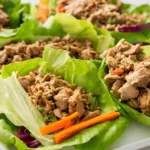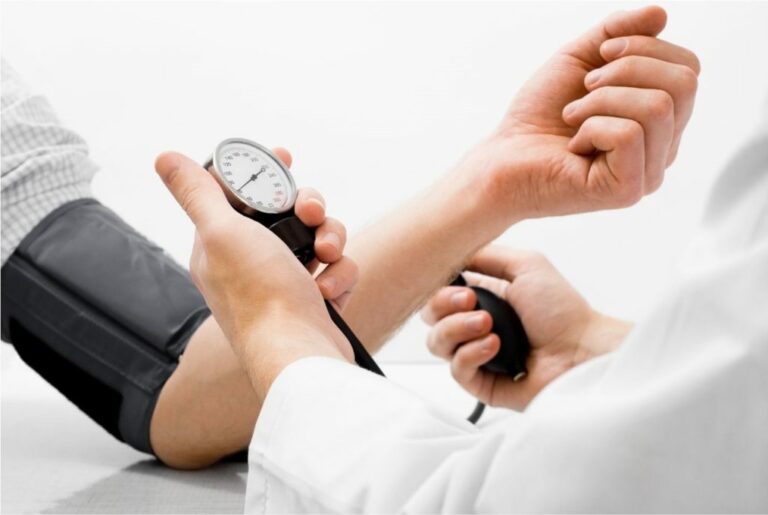GERD Management During Pregnancy Tips – A Comprehensive Guide
Experiencing GERD (Gastroesophageal Reflux Disease) during pregnancy? You’re not alone! In this guide, we’ll break down the best ways to manage GERD symptoms while keeping both you and your baby healthy and comfortable.
If you’re pregnant and dealing with GERD, you might be familiar with the burning sensation in your chest, that bloated feeling, or the constant discomfort. GERD can get worse during pregnancy due to hormonal changes and the physical pressure your growing baby places on your digestive system. But don’t worry—there are plenty of ways to manage it and make sure you feel your best throughout your pregnancy!
In this article, we’ll cover tips and strategies for managing GERD during pregnancy, from lifestyle adjustments to safe medications and natural remedies.
Why Does GERD Happen During Pregnancy?
GERD is a condition where stomach acid backs up into your esophagus, causing symptoms like heartburn, regurgitation, and chest pain. During pregnancy, the rising levels of progesterone can relax the lower esophageal sphincter (LES)—the muscle that normally prevents stomach acid from moving up into the esophagus. This makes acid reflux more likely.
Additionally, as your baby grows, the expanding uterus can put pressure on your stomach, pushing acid upward. It’s a tough combo, but understanding the cause can help you manage it better.

Effective Tips for Managing GERD During Pregnancy
Managing GERD while pregnant doesn’t have to be a struggle. Here are several tips that can help reduce symptoms and keep you feeling comfortable:
1. Eat Smaller, More Frequent Meals
When you’re pregnant, the last thing you want is to feel stuffed or bloated, which can trigger GERD. Instead of large meals, try eating smaller portions more often throughout the day. This reduces the pressure on your stomach and helps minimize acid reflux. Avoid eating large meals right before bed, as lying down can make reflux worse.
2. Choose GERD-Friendly Foods
Some foods are known to aggravate GERD, while others can actually help soothe symptoms. Try to avoid spicy foods, citrus fruits, chocolate, and fatty meals, as these can relax the LES and increase the chances of acid reflux.
On the flip side, opt for bland, easily digestible foods like oatmeal, bananas, and baked potatoes. These foods help absorb stomach acid and reduce irritation.
3. Sleep With Your Head Elevated
If you’re dealing with nighttime acid reflux, try sleeping with your upper body propped up. Use pillows or a wedge to elevate your head and chest. This position helps prevent stomach acid from flowing back into your esophagus while you sleep. It might take a bit of trial and error to get comfortable, but it’s definitely worth it!

4. Stay Hydrated, But Be Mindful of When You Drink
Drinking plenty of water is essential during pregnancy, but drinking too much liquid at once can cause your stomach to become overly full, triggering reflux. Try sipping water throughout the day, but avoid drinking large amounts during or immediately after meals.
5. Avoid Tight Clothing
Wearing tight clothing around your stomach can put extra pressure on your abdomen and worsen GERD symptoms. Opt for loose-fitting clothing to help reduce that pressure and allow your body to function more comfortably.
Safe Medications for GERD During Pregnancy
While lifestyle changes can help, sometimes medications are necessary to manage GERD symptoms. Always consult your doctor before taking any medication, as some may not be safe during pregnancy.
Antacids
Antacids like Tums and Rolaids are generally considered safe during pregnancy, as they neutralize stomach acid. They can help relieve mild heartburn or indigestion. However, avoid antacids that contain sodium bicarbonate or aluminum, as they may not be suitable for pregnant women.
H2 Blockers and Proton Pump Inhibitors (PPIs)
For more severe GERD symptoms, your doctor might recommend H2 blockers (like ranitidine) or proton pump inhibitors (PPIs) (like omeprazole). These medications reduce the amount of stomach acid produced, helping to prevent reflux. Both H2 blockers and PPIs are considered safe for short-term use during pregnancy, but only under a healthcare provider’s guidance.

Natural Remedies for GERD During Pregnancy
If you prefer to avoid medications, there are several natural remedies you can try. Just make sure to talk to your doctor before trying any new remedies, especially if you have other pregnancy-related conditions.
1. Ginger Tea
Ginger is known for its anti-inflammatory properties and can help soothe your digestive system. Drinking ginger tea or chewing on a small piece of ginger can help reduce nausea and acid reflux.
2. Almonds
Almonds are a great snack for managing GERD during pregnancy. They are alkaline and can help neutralize stomach acid. Just eat a small handful after meals to reap the benefits.
3. Apple Cider Vinegar
While it might seem counterintuitive, some people find relief from GERD symptoms by taking a small amount of diluted apple cider vinegar before meals. The idea is that apple cider vinegar helps balance stomach acid production. However, this may not work for everyone, so use it with caution.
When to See a Doctor
If your GERD symptoms are severe, frequent, or not improving with lifestyle changes, it’s essential to consult your doctor. Persistent acid reflux can lead to complications, such as esophageal damage, and your doctor can guide you toward the best treatment options.
Appendices
5 FAQs About GERD During Pregnancy
- Can GERD harm my baby during pregnancy? Generally, GERD is not harmful to your baby. However, untreated GERD can lead to complications like poor nutrition if it affects your eating habits. Always consult your doctor if you’re worried.
- Are antacids safe during pregnancy? Many over-the-counter antacids are safe during pregnancy, but it’s always a good idea to check with your healthcare provider before using them.
- What foods should I avoid with GERD while pregnant? Avoid spicy foods, fatty meals, chocolate, citrus, and caffeine, as they can trigger or worsen GERD symptoms.
- Can I lie down after eating if I have GERD? It’s best to wait at least 30 minutes after eating before lying down, as this helps prevent acid from backing up into the esophagus.
- Is heartburn common in pregnancy? Yes, heartburn is a common symptom during pregnancy, especially in the second and third trimesters, due to hormonal changes and the pressure from the growing baby.
References
- American College of Obstetricians and Gynecologists (ACOG). (2022). Managing GERD During Pregnancy. Read Article
- Smith, R., & Patel, J. (2021). Pregnancy and Digestive Health. Journal of Maternal-Fetal Medicine, 35(4), 120-125. Read Article
- National Institutes of Health (NIH). (2024). Heartburn and GERD in Pregnancy. Read Article
Disclaimer: The information provided in this article is for educational purposes only and does not substitute for professional medical advice. Always consult your healthcare provider before making any changes to your diet, medications, or treatment plan during pregnancy.

Camellia Wulansari is a dedicated health writer specializing in digestive disorders, contributing valuable insights and information to the health and wellness community. With a passion for promoting well-being through knowledge, Camellia serves as a reliable source of expert content on healthusias.com.














